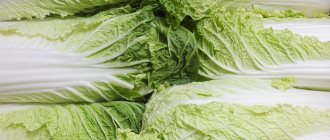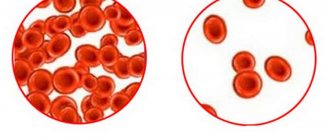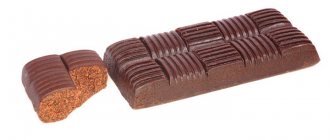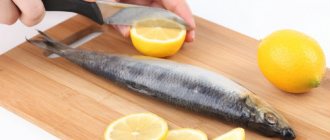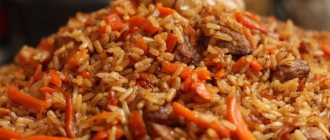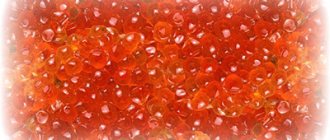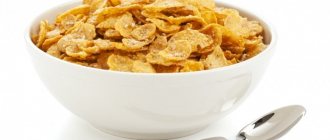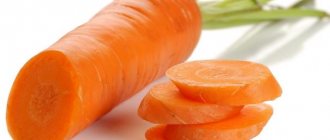Mayonnaise has firmly entered our lives - this sauce is used to dress salads, marinades for meat and fish are made with it, and it is added to soups instead of sour cream. Each of us understands that it is harmful, but the small amount of seasoning that we use seems insignificant and harmless to us. But what should new mothers do, since even a small amount of prohibited foods in the diet can negatively affect the condition of the babies? Is it possible to use mayonnaise while breastfeeding?
Composition of mayonnaise
The birthplace of mayonnaise is France, and the wasp waists of the residents of this European country and the harmfulness of the fatty sauce seem incompatible to us. But it's all about eating habits. In France, mayonnaise is used to season some dishes and in small quantities; in our country, housewives generously pour the sauce over almost all dishes.
The fat content of the sauce is due to its main component: vegetable oil. This base is beaten with eggs, vinegar and mustard to a white emulsion, which subsequently retains its consistency and does not separate. The mixture of simple and familiar components, however, makes this French sauce harmful not only during lactation, but also in “ordinary” life.
Composition of mayonnaise: what is dangerous about store-bought mayonnaise?
Some women like to season their food with store-bought mayonnaise; they find it tasty and can diversify the taste of their usual dishes. But when breastfeeding, you should not pay attention only to the taste of the sauce, because it contains ingredients that can harm the baby. It could be:
- Vegetable oil - sunflower oil is often used, which was subjected to all kinds of processing during the preparation process, or oils with lower quality indicators, for example, from soy, peanuts, cotton or rapeseed. As a result of processing, oils lose harmful substances to some extent, but at the same time, some vitamins and beneficial elements disappear. To prevent this, some manufacturers replace such a product with modified compounds of chemical origin. They, in turn, are not digested by the body and partially settle on the walls of blood vessels and organs.
- An egg, or rather egg powder, because the natural product is practically no longer used in the preparation of mayonnaise industrially.
- Food additives - thickeners, preservatives and others. Store-bought mayonnaise contains harmful E components, stabilizers, and emulsifiers. These are the ingredients that a nursing woman and her baby do not need. In addition, mayonnaise from the store counter has a high fat content, which unnecessarily burdens the body and negatively affects the functioning of the digestive system.
The harm of mayonnaise
The French sauce that we are so passionate about brings with it a lot of problems for our health:
- Consumption of mayonnaise is associated with the most important problem - excess weight. And it’s not just the fat content of the product - by seasoning dishes with this sauce, we eat much more than we should.
- Nutritionists are confident that mayonnaise becomes a provocateur for the development of many diseases: fats “kill” our cardiovascular system and interfere with metabolic processes, and flavor enhancers and preservatives, which manufacturers generously flavor their products with, have a detrimental effect on the digestive system and the condition of the liver.
- Mayonnaise is persistently addictive, introducing an unhealthy food culture into our lives. Few people make this sauce at home from high-quality ingredients; it is much easier and cheaper to buy a ready-made product in the store. But industrial mayonnaise contains a lot of flavor enhancers that make us addicted - that is why ordinary dishes without this sauce seem bland and tasteless to us.
Consumption of mayonnaise brings with it not only “remote” health problems: young people and adolescents, due to the constant presence of this sauce in the diet, develop problems with skin, hair and digestion. Doctors are sounding the alarm: gastritis has become much “younger,” and the number of dermatologists’ patients turning to them for help in treating acne is growing every year.

How to make mayonnaise at home?
It is allowed to enjoy the sauce only in the following cases:
- The mayonnaise is homemade and contains only natural ingredients. This sauce expires within 48 hours.
- You can try the product for the first time only after the baby is six months old. Until this point, it can negatively affect the formation of internal organs and systems.
- The sauce should contain only natural and fresh ingredients. You should first make sure that the baby is not allergic to each of them. To make mayonnaise, mix two raw and two boiled quail eggs. Additionally, add olive oil, lemon juice and spices to taste. To obtain a homogeneous mixture, use a blender.
While breastfeeding, you should avoid sauces that are sold ready-made in stores. It is allowed to eat only the composition that is prepared at home.
Harm from hepatitis B
Since this product is harmful, it is clear that store-bought mayonnaise should not be consumed while breastfeeding. Traces of taste improvers and preservatives that enter the baby's body with mother's milk can lead to a variety of negative reactions: digestive disorders in the baby, skin rashes and colic. Modern sauces have a colossal shelf life; some products can be stored for up to six months. This “longevity” of the product is ensured by a huge number of preservative additives, which are unlikely to be useful for both mother and baby, which is why it is better not to buy a store-bought product.
Homemade mayonnaise is no less dangerous during lactation: the sauce contains components recognized as potentially allergenic:
- Raw chicken eggs can cause an allergic reaction in the baby.
- Vinegar, which is part of homemade mayonnaise, can cause digestive problems in a child.
- Lemon juice, which replaces vinegar, is also considered a strong allergen.
- Mustard is a rather pungent spice, so traces of this ingredient in breast milk can also lead to diarrhea and colic in infants.
Of course, homemade mayonnaise is not a completely forbidden product throughout the entire period of breastfeeding. As the baby's digestive system stabilizes and the immune system strengthens, the mother can begin to introduce French sauce into her diet. Experts do not allow the use of mayonnaise during lactation only in the first 3 months; the reason for this ban is based on the high risk of colic and diarrhea in a newborn.
But for some mothers, the use of mayonnaise will be contraindicated even after 3 months, and even if their lactation has not improved: this product is not recommended to be included in their diet for those women whose pregnancy was difficult and was accompanied by increased blood pressure, swelling and the threat of premature birth. Fatty sauce, even several months after childbirth, can harm literally all systems of a weakened body.
If the mother’s pregnancy was normal, after the period of colic in the baby ends, she can, if desired, begin to include homemade mayonnaise in her diet. But experts still recommend delaying the introduction of this product into the diet as much as possible; it is better to replace it with sour cream or yogurt without additives.

Homemade mayonnaise as an alternative
The feeding period lasts on average 1-2 years, and during this time it is difficult to restrain yourself from eating dishes with sauce. Since a store-bought product is strictly prohibited, you can prepare a homemade version. The chicken egg should be replaced with a quail egg, as it does not cause an allergic reaction, and lemon juice should be added instead of vinegar.
The harmless recipe is as follows: mix 2 boiled quail eggs with olive oil, lemon juice and spices in a blender until the desired consistency. Before full use, you need to taste the product in a small amount to see how the baby reacts. If there are no adverse reactions, you can safely add the mixture to your dishes.
Store-bought mayonnaise should be excluded from the menu during lactation to prevent problems.
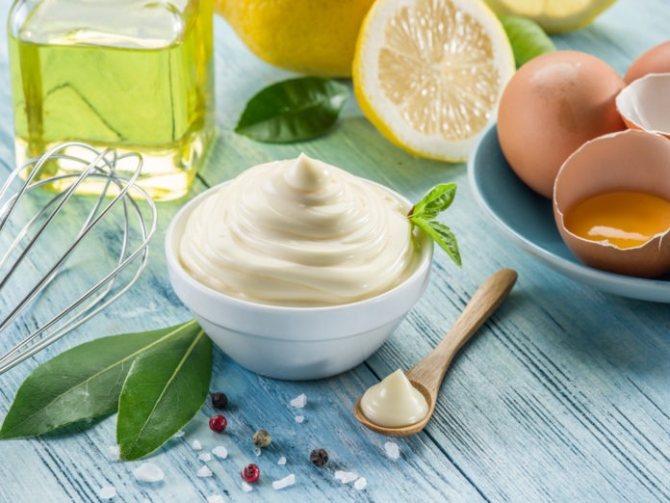
If before pregnancy a woman could not imagine most dishes without mayonnaise, it is difficult for her to refuse it. Is industrial mayonnaise allowed during breastfeeding, why is its composition dangerous, what alternative to find.
Pediatricians are unanimous in their opinion that it is impossible. Neither in the first month, nor in the second month, nor in the subsequent period of breastfeeding.
The product can cause various problems for mother and baby. It is very high in calories, so the child’s gastrointestinal tract is overloaded.
The baby has digestive problems. And mom is gaining extra pounds.
Mayonnaise is prohibited even for school-age children. What can we say about a nursing mother and a newborn?
The classic mayonnaise recipe contains a minimum of ingredients. These are eggs, vinegar, vegetable oil, spices.
Some sauces add mustard and lemon juice instead of vinegar. The ingredients seem harmless at first glance. Actually this is not true.
• Vegetable oil is indeed harmless to mother and child. Unless replaced by modified compounds that cost less and last longer.
The body does not absorb such fats, and they remain on the walls of the gastrointestinal tract. In the future, this provokes many diseases.
• Mustard promotes fluid retention in the body. This interferes with lactation, reducing milk supply.
• Eggs can cause allergies in a child. One of the most common manifestations: itchy skin rashes. Eggs can also negatively affect the functioning of a baby’s intestines.
• Vinegar is potentially harmful to an infant's digestive system. The acid and complex alcohols in its composition threaten the walls of the stomach and intestines.
• Food additives in industrial mayonnaise are harmful to mothers and babies. As a rule, the shelf life of mayonnaise is at least several months.
It is clear that it contains harmful components: preservatives, thickeners, dyes, stabilizers, flavor enhancers.
Even if the composition contains a minimum of components, this does not guarantee the naturalness of the sauce. Perhaps the manufacturer simply hid some of the ingredients from consumers.
What exactly is store-bought mayonnaise dangerous for babies:
• Causes addiction. Due to flavorings and flavor enhancers. The danger of addiction is fraught not only with this sauce, but also with other ready-made products from the counter with a long shelf life.
• Provokes weight gain. This applies to both the child and the mother. There are 2 reasons for this: the high fat content of the product and an increase in portions of food to which mayonnaise is added. There are studies that have shown that by adding sauce, a person is able to eat a double portion.
• Makes it difficult for the kidneys to function. They do not cope with the removal of food additives contained in the product.
• Contributes to the occurrence of diseases. Preservatives worsen the condition of nails, hair, and skin. The product can provoke ulcers, gastritis, atherosclerosis, problems with blood pressure, and heart problems.
This is due to excess fats that interfere with the functioning of internal organs, impair metabolism, and irritate the walls of the stomach.
When preparing salads and other dishes, it is quite possible to find an alternative to the usual sauce. Perfect for:
- sunflower or olive oil;
- sour cream;
- yogurt;
- homemade dressings and sauces.
If a mother really wants to add sauce to some of her dishes or eat a salad with mayonnaise on a holiday, she can make it herself.
This way its composition will be under control. And from a harmful product it will become at least a little useful.
• It is better to replace chicken eggs with quail eggs. They are considered hypoallergenic.
• Instead of vinegar, natural lemon juice is added to the sauce for nursing mothers. Vitamin C in its composition makes the product useful.
• The recipe also includes olive or sunflower oil. The choice depends on taste preferences.
This product will not harm the baby, but its quantity should be limited. For the first time, you can try spreading a little sauce on the bread.
If the product suits your child, you can add it to the salad.
Here are the main conditions for safe consumption of mayonnaise:
• It must be prepared at home and consumed within 2 days.
• You should not even use homemade sauce in the first 2 months of a child’s life. You can try it from the third month or postpone it until six months.
• Neither mother nor baby should have an allergic reaction to the components of mayonnaise.
You shouldn’t risk your baby’s health and try store-bought mayonnaise. It's better to cook it yourself or find another alternative.
A salad with olive oil or sour cream will be no less tasty, but much more healthy.
A young mother should carefully take care of her diet, replace some ingredients with healthier ones, and give up some altogether. Some dishes, snacks or sauces can be prepared at home, then the woman will be confident in their composition and quality of preparation. For example, in order not to once again wonder whether mayonnaise is possible while breastfeeding, it is better to prepare it yourself. This is much healthier and safer for babies.
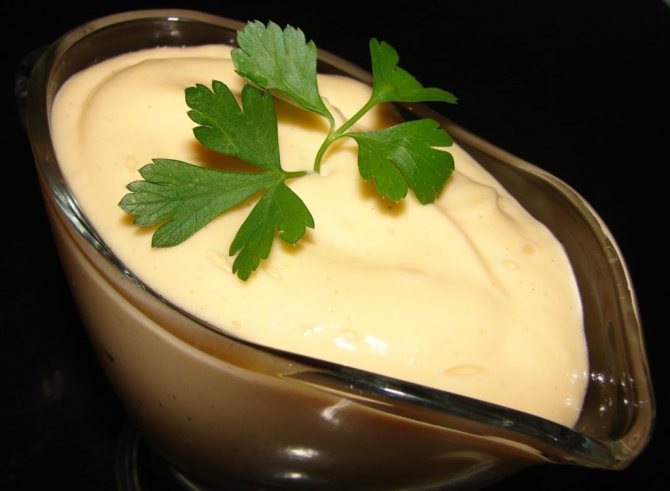
Using homemade mayonnaise for breastfeeding
If you search on thematic forums for information on whether you can use mayonnaise while breastfeeding, you will find a lot of recipes for homemade sauce. In the safest options from the point of view of allergenicity, chicken eggs are successfully replaced with quail eggs, and harmful vinegar with natural lemon juice.
Before including homemade mayonnaise during lactation in her diet, a new mother should introduce the main components of the sauce into her menu and make sure that the baby does not have any negative reaction to these new items. The main potentially allergenic ingredient is lemon juice. Some children may develop rashes and diarrhea in response to citrus fruits even before the age of two, but at the same time, if you observe healthy moderation when consuming homemade mayonnaise, a small amount of juice may not harm the baby.
- Trying homemade mayonnaise during breastfeeding is allowed in the fourth month, but it is advisable to “push back” the inclusion of this product in the diet as much as possible. By six months, the baby will be able to perceive traces of vinegar or lemon juice in breast milk without consequences.
- You should eat a new product in the morning, before you start breastfeeding your baby.
- For the first time, you are allowed to eat no more than 1 tsp. sauce, and then for 3 days you should observe the baby’s skin and the nature of his stool. It is important not to include any other new products in your diet during this period - this way you will be sure that the baby’s negative reaction was “the fault” of homemade mayonnaise.
- If your baby does not have a negative reaction, you can gradually increase the amount of homemade sauce in your diet in three-day increments until you bring it to the permitted limit - 1 tbsp. per day.
- If during the period of increasing the volume of sauce the baby has an allergic reaction, stop eating mayonnaise. You will be able to try this product again only after 3 weeks.
- Since homemade mayonnaise is prepared from natural products and is free of preservatives, it cannot be stored for more than 2 days.
Homemade mayonnaise: recipe for mom
Meanwhile, new mothers often argue on thematic forums whether a nursing mother can use mayonnaise and criticize the restrictions in the “nursing diet.” The forbidden fruit is sweet, so the dilemma arises: to eat your favorite Olivier or not.
Conservative pediatricians are categorical on this matter: while you are breastfeeding, forget about mayonnaise. For those who are completely unbearable, it is recommended to replace it with sour cream or unsweetened yogurt. Doctors of the new generation allow the presence of the product in the mother’s diet, but only in its natural form.

3 rules for preparation and use during breastfeeding
Pediatricians emphasize: mayonnaise while breastfeeding can only be eaten if three rules are taken into account.
- Cook at home. Thus, the product must be prepared strictly in a home kitchen and eaten within a maximum of two days.
- We eat on time. Fatty foods, including our sauce, should not appear on the lactation menu in the first months after the birth of the baby. It is better to try a popular dressing closer to six months, following the general rules for introducing new products into the diet.
- We follow the recipe. Before preparing the sauce, you must be sure that the baby is not allergic to the ingredients in its composition. For example, egg yolk. The recipe for homemade mayonnaise is simple. You will need a blender. Two boiled yolks and two raw. Spices. Any vegetable oil. Acetic acid. In normal mode, all these components are simply mixed and diluted with water to the desired consistency. How to improve the recipe for a nursing mother? Chicken eggs can be replaced with quail eggs. For spices, use only salt and sugar. Instead of vinegar, use lemon juice.
The nutritional value
The table below shows in detail what useful components natural mayonnaise may contain. The calculation is made based on their quantity per 100 g of product.
Table - Chemical composition of homemade mayonnaise
| The nutritional value | Per 100 g | Vitamins | Per 100 g | Macro- and microelements | Per 100 g |
| Squirrels | 2.8 g | A | 0.02 mg | Calcium (Ca) | 33 mg |
| Fats | 67 g | PP | 0.1 mg | Magnesium (Mg) | 13 mg |
| Carbohydrates | 3.7 g | IN 1 | 0.01 mg | Sodium (Na) | 508 mg |
| AT 2 | 0.05 mg | Phosphorus (P) | 54 mg | ||
| AT 6 | 0.01 mg | Potassium (K) | 38 mg | ||
| E | 30 mg | Iron (Fe) | 1 mg | ||
| AT 4 | 14.3 mg |
Thus, the “correct” homemade mayonnaise, prepared especially for mom, can even be beneficial. Quail eggs are a source of vitamin A, which is a powerful antioxidant. And vitamins B1 and B2, which are needed for heart health, stress relief and energy boost. Vegetable oil can also provide energy and improve metabolism. But lemon is rich in vitamin C, which is necessary for strong immunity.
Can a nursing mother have mayonnaise? If yes, then only natural. But let's face it: preparing such a product at home is expensive. And mothers don’t have much time to constantly fuss around in the kitchen. So is it even worth starting this mayonnaise story, risking the baby’s health and accumulating unnecessary calories?
Homemade mayonnaise recipe
The process of preparing homemade sauce takes no more than 5 minutes. For successful whipping, you will need high-quality products, which should be brought to room temperature:
- 200 ml vegetable oil;
- 2-3 quail eggs or 1 chicken;
- 1 tsp each mustard and sugar;
- salt to taste (about 1/2 tsp);
- 1 tbsp. vinegar or lemon juice.
All ingredients should be placed in a tall container and blended with an immersion blender at high speed. If the sauce turns out watery, you can add a little more vegetable oil to the emulsion and mix vigorously again.
It is better to delay the inclusion of mayonnaise in the mother's diet during breastfeeding as much as possible, so that traces of potentially allergenic components of this sauce in mother's milk do not harm the baby. If you have successfully introduced this product into your menu, do not forget about moderation when consuming it.
Can a nursing mother eat mayonnaise?
- Product Features
- What can you replace mayonnaise with?
- High level of danger
- How to make mayonnaise at home?
Mother's milk is the ideal food for the first few months of a baby's life. During this period, a woman is faced with a large number of prohibitions or recommendations. Sometimes the opinions of experts on the same issue may differ. The diet should consist of a large variety of dishes. There is a taboo on some ingredients that can lead to a negative reaction in the body of the mother or baby. Mayonnaise during breastfeeding is prohibited by almost all breastfeeding specialists. However, it is included in a large number of dishes. It is important to understand how this ingredient affects the functioning of the baby’s digestive system and whether it should be consumed, even in limited quantities.
Mayonnaise during breastfeeding is prohibited by almost all breastfeeding specialists.
